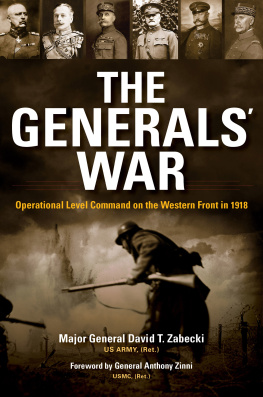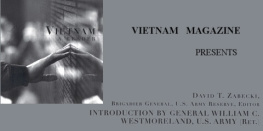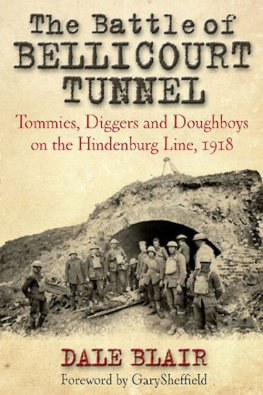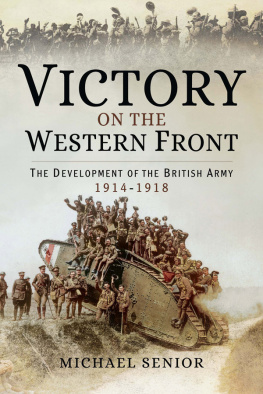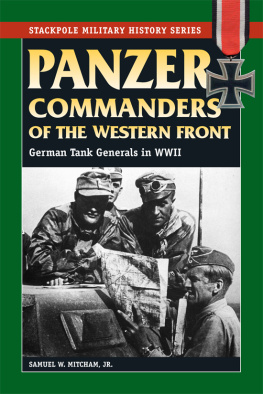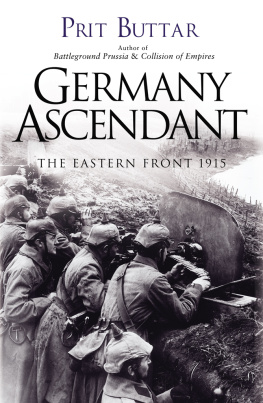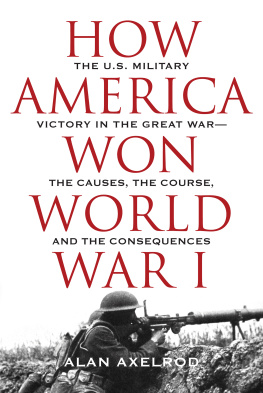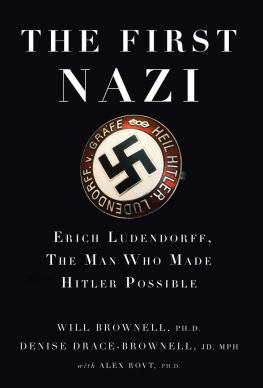
THE GENERALS WAR

TWENTIETH-CENTURY BATTLES
Edited by Spencer C. Tucker
Balkan Breakthrough: The Battle of Dobro Pole 1918
RICHARD C. HALL
The Battle of An Loc
JAMES H. WILLBANKS
Battle of Dogger Bank: The First Dreadnought Engagement, January 1915
TOBIAS R. PHILBIN
The Battle of Leyte Gulf: The Last Fleet Action
H. P. WILLMOTT
The Battle of Heligoland Bight
ERIC W. OSBORNE
The Battle for Manchuria and the Fate of China: Siping, 1946
HAROLD M. TANNER
The Battle for Western Europe,
Fall 1944: An Operational Assessment
JOHN A. ADAMS
The Battle of the Otranto Straits: Controlling the Gateway to the Adriatic in World War I
PAUL G. HALPERN
Battle of Surigao Strait
ANTHONY P. TULLY
The Brusilov Offensive
TIMOTHY C. DOWLING
Chinas Battle for Korea: The 1951 Spring Offensive
XIAOBING LI
D-Day in the Pacific: The Battle of Saipan
HAROLD J. GOLDBERG
The Dieppe Raid: The Story of the Disastrous 1942 Expedition
ROBIN NEILLANDS
The Imjin and Kapyong Battles, Korea, 1951
S. P. MACKENZIE
In Passage Perilous: Malta and the Convoy Battles of June 1942
VINCENT P. OHARA
Invasion of Norway, 1940 Midway Inquest: Why the Japanese Lost the Battle of Midway
DALLAS WOODBURY ISOM
New Georgia: The Second Battle for the Solomons
RONNIE DAY
Operation Albion: The German Conquest of the Baltic Islands
MICHAEL B. BARRETT
Prelude to Blitzkrieg: The 1916 Austro-German Campaign in Romania
MICHAEL B. BARRETT
The Second Battle of the Marne
MICHAEL S. NEIBERG
The Siege of Kut-al-Amara:
At War in Mesopotamia, 19151916
NIKOLAS GARDNER
Where Chiang Kai-shek Lost China: The Liao-Shen Campaign, 1948
HAROLD M. TANNER
Written in Blood: The Battles for Fortress Przemysl in WWI
GRAYDON A. TUNSTALL JR.
The Battle for North Africa: El Alamein and the Turning Point for World War II
GLYN HARPER
THE GENERALS WAR
OPERATIONAL LEVEL COMMAND ON THE WESTERN FRONT IN 1918
Major General David T. Zbecki
US ARMY, (Ret.)
Foreword by General Anthony Zinni
USMC, (Ret.)
Indiana University Press
This book is a publication of
Indiana University Press
Office of Scholarly Publishing
Herman B Wells Library 350
1320 East 10th Street
Bloomington, Indiana 47405 USA
iupress.indiana.edu
2018 by David T. Zbecki
All rights reserved
No part of this book may be reproduced or utilized in any form or by any means, electronic or mechanical, including photocopying and recording, or by any information storage and retrieval system, without permission in writing from the publisher. The paper used in this publication meets the minimum requirements of the American National Standard for Information SciencesPermanence of Paper for Printed Library Materials, ANSI Z39.48-1992.
Manufactured in the United States of America
Cataloging information is available from the Library of Congress.
ISBN 978-0-253-03701-5 (hardback)
ISBN 978-0-253-03782-4 (ebook)
1 2 3 4 5 23 22 21 20 19 18
Cover illustration credits: Top front (left to right): Ludendorff, photograph via George Grantham Bain Collection, Library of Congress Prints and Photographs Division [LC-B2-5240-7]; Haig, photograph by Elliot and Fry; Foch, photograph by Melcy; Pershing, photograph via Library of Congress Prints and Photographs Division [LC-USZ62-13554]; Hindenburg, photograph by Nicola Perscheid; Ptain, portrait by Marcel Baschet.
FOR MY GRANDDAUGHTERS
Amy Franciszka Zbecki
&
Wren Valentina Zbecki
CONTENTS
by Anthony C. Zinni, General, USMC (Ret)
FOREWORD
MY FATHER SERVED IN THE American Expeditionary Force during World War I. He was a young Italian immigrant to the United States and was drafted into the U.S. Army, deploying to France in 1918 as a mechanic in an aviation squadron. A number of his friends in our neighborhood also served in France, and some who immigrated after the war had served in the Italian army on the Austrian front. I grew up listening to their war stories with rapt attention. I had my fathers uniform, helmet, war souvenirs, and a priceless photo album of pictures he took of dogfights, downed aircraft, and fellow Doughboys. I came along much later in my parents lives, so my friends had fathers who served in World War II. I had cousins who also served in that war in the Pacific and Europe as well as a brother who served in the Korean War. It was a considerable advantage, in my mind, to be able to hear the stories about three very different conflicts and to hear them from men who were in the trenches. My prized toys at that time were sets of miniature soldiers that gave me endless pleasure as I fought imaginary battles in my backyard.
No one in my family had been an officer, so I didnt think much about things like strategy, operations, or tactics at that time of my life. It all seemed to me that there was a group of infallible generals at the top who made brilliant decisions. Besides, I never heard any of the hardened veterans in my neighborhood, and there were many, speak ill of their battlefield leaders. I assumed that serving in the military was a rite of passage to manhood and that I would serve at some point. I did. For thirty-nine years I served in the United States Marine Corps and became one of those generals who I realized were not as infallible as I thought.
My first war was Vietnam. It was a war that I experienced in a very up-close-and-personal way in two tours of duty there. In my first tour as a lieutenant, I was an adviser to the Vietnamese Marines. I went to language school prior to my assignment, wore the uniform of the Vietnamese Marines, lived in the villages, rarely saw other Americans, and operated throughout the country. That experience gave me a unique view of the conflict, one that differed greatly from my brother officers who served in U.S. units and saw the war through that prism. On my second tour as an infantry company commander, I gained a totally different perspective before being severely wounded and evacuated. These experiences had me questioning the generals and political leaders who appeared to me to be totally out of touch with the realities of that battlefield and in those villages. It seemed we had it wrong at every level and were winning battles through the sheer courage and tenacity of our troops and not through any strategic, operational, or tactical brilliance. Our generals were formed and forged in World War II and Korea. This war seemed to befuddle them.
As my peers and I became more experienced, educated, and hardened, we grew more critical and reflective about what we went through. The study of military history caused us to realize that wars, campaigns, and battles of the past were complex affairs, and those who led or planned for them were human: sometimes brilliant, sometimes flawed, sometimes lucky, and sometimes unlucky. An honest, in-depth study of wartime leaders pulls away the flawless, heroic images we project for the folks back home and for our posterity and reveals men of varying degrees of skill, intelligence, character, and judgment. Wars produce heroes and legends. They also produce scapegoats and reveal incompetence.
Next page
